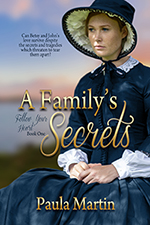Saturday, April 20, 2024
Mr Rochester - Ultimate Bad Boy!...by Sheila Claydon
Thursday, August 25, 2022
My Links with 'Jane Eyre'
My 'Links' with 'Jane Eyre'
I first read Charlotte Bronte's 'Jane Eyre' when I was about 11 and loved it. My mother took me to see a stage adaptation performed by our local repertory company, which was one of the events that led to my lifelong love of theatre, and I read the book more times than I can count.
About three years later, the story was serialised in 6 parts on BBC, in the old days of black and white television. Stanley Baker played Rochester and Daphne Slater played Jane. This was made doubly interesting by the fact that my class tutor at the time had been at school with Daphne Slater and used her 'connections' to get the autographs of both lead characters for us all (which I still have!)
Fast forward about 30+ years. I started researching my family history and dscovered a link (in my father's family) to landed gentry in the county of Derbyshire. One of my ancestors was Robert Eyre (1390-1459) who fought at the Battle of Agincourt in 1415. He owned land in the county and married Joan Padley, the heiress to other estates. They lived in the small village of Hathersage and when they died, their tombs were surmounted with brass effigies. These are the most famous effigies in the church.
Even more fascinating (for me at least) was the connection between these brasses and Jane Eyre.
In 1845 Charlotte Bronte went to stay at the Rectory at Hathersage with an old school friend, whose brother was the vicar. It was here she started to write her novel about Jane Eyre. It is said that she was inspired by the brass effigy on the tomb of Joan Eyre (nee Padley).
So it seems Jane Eyre was named after my 15-times-great grandmother! Maybe that is why I have always had an affinity with Charlotte Bronte's novel?
Find me on Facebook: www.facebook.com/paulamartinromances
Link to my Amazon author page: author.to/PMamazon
Popular Posts
-
https://www.bookswelove.com/search?q=dekelver It is 2047, two years since Vancouver was devastat...
-
The Curse of the Lost Isle series starts in the time of Charlemagne and the Viking Invasions and ends during the Crusades.Find these books o...
-
My New Year’s Resolution was to stop using my favourite word - the f-bomb. Just so you know, the resolution was a suggestion from a love...
-
To learn more about Rosemary please click on the image above. I am a fan of well written historical fiction which recreates past times. A...
-
Of all the physical sciences, none seems to defy logic and understanding as does astronomy. Or so it seems to me. The numbers alon...
-
The English language is rich with idioms, odd turns of phrase, and regional colloquial isms. For a foreigner trying to learn English (w...
-
As husband Larry and I drove from Santa Rosa Beach to my book signing at the BAM store in Destin, Florida, I had a flashback. ...
-
Rejection ...by Jamie Hill According to Wikipedia (so it must be true) : The word "rejection" was first used in 1415. The orig...
-
By The Same Author: Parlor Girls An Everleigh Sisters (world famous madams) bio. Wynter'...

.heic)










